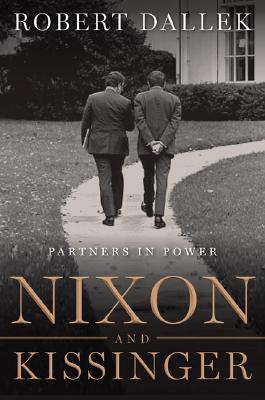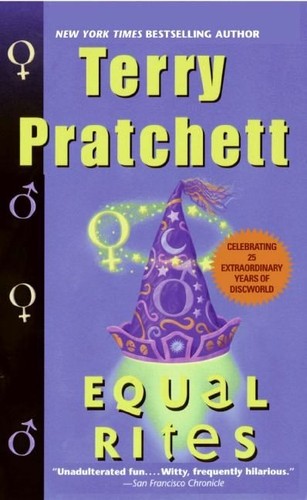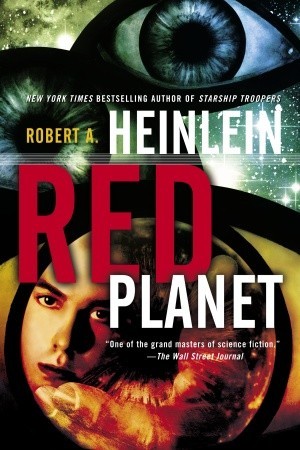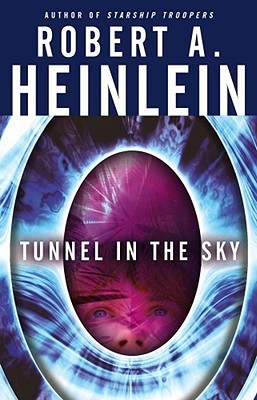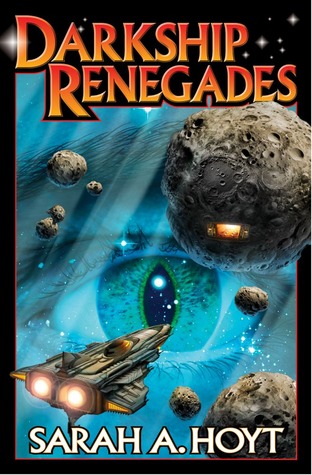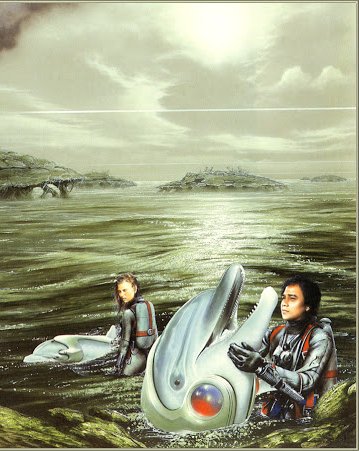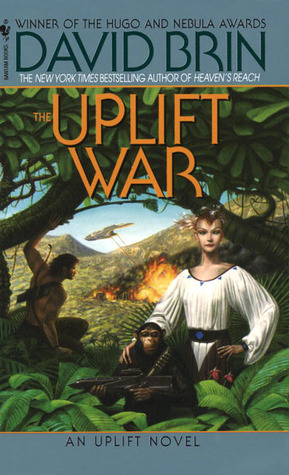
The Uplift War
by David Brin
My rating: ★★★★☆
Read From: 28 July 2013 - 6 August 2013
This is the concluding book in David Brin's original Uplift trilogy. These stories take place in an imaginative universe.
All races in the Galaxy have been “uplifted” into sentience by a prior alien race, in a chain stretching back to the Progenitors. Humans have even uplifted dolphins and chimpanzees into sentience. But who uplifted humanity? This is a great mystery and the other races are antagonistic towards the “wolfing” human race, without patrons or lineage.
The last book, Startide Rising, dealt primarily with the neo-dolphins that humanity has Uplifted into intelligence. This book deals primarily with the neo-chimpanzees that have been similarly Uplifted.
Startide Rising dealt almost entirely with the neo-dolphins. The Galactics were in the story but we only got cursory glimpses of them and didn't become familiar with any one race. The Uplift War turns that around.
The action takes place on the planet of Garth, a human and neo-chimp colony. Garth is invaded by the Gubru (an avian species). Several of the chimp characters take leading roles. Humanity is allied with another alien species, the Tymbrimi. The story also features Athacleana, the daughter of the Tymbrimi ambassador.
I liked this focus on the chimp and Tymbrimi characters. David Brin does a pretty good job at bringing a non-human perspective to the story. (I did feel, at times, that Athacleana was acting too much like a human female though.)
Brin has hinted in the previous books about the different species, their behaviors, and Galactic customs. In this book, he moved from hints to specifics. He used this story to narrow the focus from all of the Galactics to just two or three specific species. He then dove into the details of how the races acted, politicked, and made war. It gave a lot of depth and realism to his universe.
This was a very good end to Brin's original trilogy. It didn't answer any of the big mysteries from Startide Rising, but it expanded the scope of the story and made it clear that there are many, many more stories that could yet be told.
